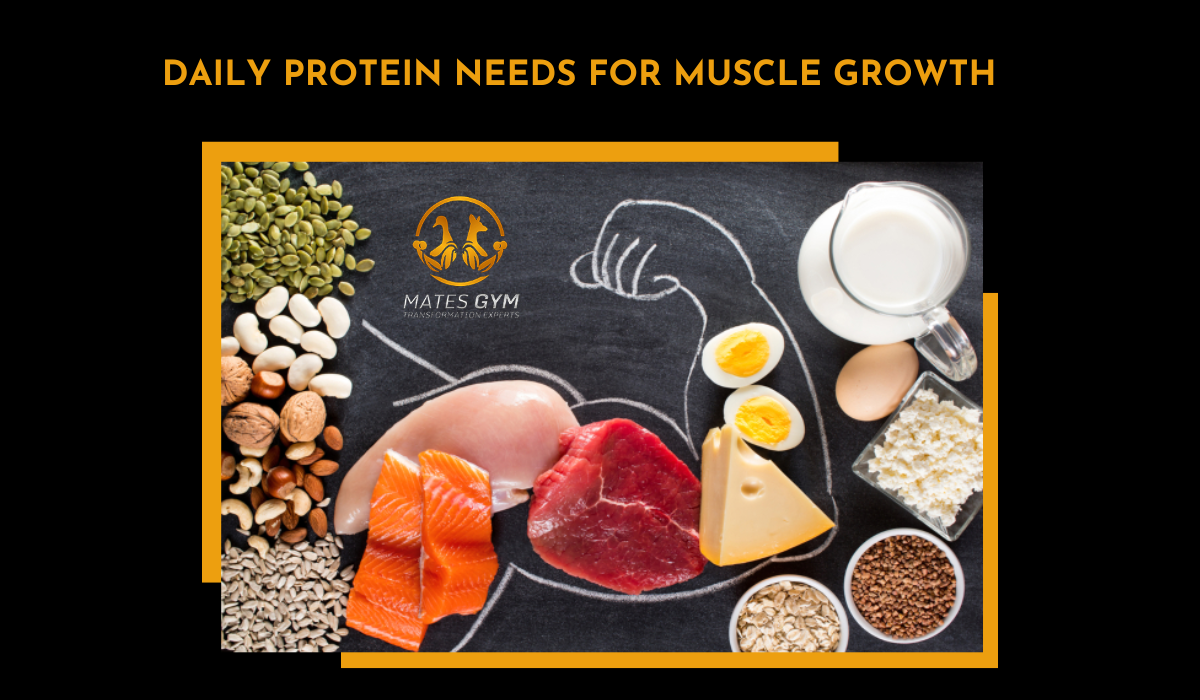Are you putting in the work at the gym but not seeing the muscle gains you desire? It’s time to take a closer look at your protein intake! In this blog, we’ll uncover the vital role protein plays in muscle building and delve into the specifics of how much you actually need. From understanding the importance of protein for muscle repair and growth to debunking common myths surrounding protein consumption, this informative guide will equip you with the knowledge to optimize your muscle-building journey. Get ready to unlock the secrets to maximizing your gains and achieving the results you’ve been striving for!
The Importance of Protein for Muscle Building
Certainly! Here are the top 5 importance of protein for muscle building, presented in a concise and engaging manner:
- Muscle Repair: Protein serves as the building blocks for repairing and rebuilding muscle tissue after intense workouts, aiding in muscle recovery and growth.
- Strength Development: Adequate protein intake supports the development of stronger and more resilient muscles, enhancing overall strength and performance during exercise.
- Metabolism Boost: Protein has a higher thermic effect compared to fats and carbohydrates, meaning it requires more energy to digest. This can help boost metabolism, aiding in fat loss and muscle preservation.
- Hormone Regulation: Protein plays a crucial role in regulating hormone levels, including insulin, which is essential for transporting nutrients into muscle cells for growth and repair.
- Prevents Muscle Breakdown: Consuming enough protein helps prevent muscle breakdown, especially during periods of calorie restriction or intense training, ensuring your hard-earned muscle mass is preserved.
How Much Protein Do You Need Per Day?
Determining your daily protein requirement depends on various factors such as your weight, activity level, and age. Typically, experts recommend consuming between 1.2 to 2.2 grams of protein per kilogram of body weight per day.
Here’s a simplified breakdown:
For people who don’t exercise much, it’s best to stick to the lower side of the recommended protein intake range.
Active individuals: Opt for a protein intake closer to the higher end of the range.
To make it easier, here’s a quick reference table showing protein intake recommendations based on different weight categories:
| Weight (kg) | Protein Intake (grams) |
|---|---|
| 50 | 60 – 110 |
| 70 | 85 – 155 |
| 90 | 110 – 200 |
| 110 | 135 – 245 |
Spreading Out Your Protein Intake
- Maximize Muscle Fuel: By spreading protein consumption throughout the day, you provide a continuous source of fuel for muscle repair and growth.
- Sustained Energy: Regular protein intake helps maintain steady energy levels, keeping you fueled for gym workouts and daily activities.
- Optimal Absorption: Splitting protein intake allows for better absorption and utilization by the body, maximizing muscle-building potential.
- Avoiding Muscle Breakdown: Consistent protein supply prevents muscle breakdown, ensuring your hard-earned gains stay intact.
- Feel Fuller Longer: Protein-rich meals and snacks help curb hunger cravings, making it easier to stick to your dietary goals and avoid overeating.
Choosing High-Quality Protein Sources
Not all protein sources are created equal. Focus on incorporating lean protein sources into your diet, such as:
Non-Vegetarian:
- Kangaroo
- Barramundi (Fish)
- Turkey
- Australian Prawns
- Duck Breast
Vegetarian: - Quinoa
- Edamame
- Chickpeas
- Lupin Beans
- TofuThese options provide ample protein without excessive amounts of saturated fats or added sugars.
Busting Protein Myths: Separating Fact from Fiction
- Myth: More protein equals more muscle.
- Reality: While protein is essential for muscle growth, consuming excessive amounts won’t necessarily lead to more gains. Aim for an optimal intake based on your individual needs.
- Myth: You need to consume protein immediately after a workout.
- Reality: While post-workout protein intake is beneficial, it’s not critical to consume it immediately. Focus on meeting your daily protein goals rather than stressing over precise timing.
In wrapping up our exploration of protein’s vital role in muscle building, remember that it’s not just about quantity but also about quality and timing. By meeting your daily protein needs with lean sources and spreading intake throughout the day, you’re priming your body for optimal muscle growth. Bust those protein myths, consult experts for personalized advice, and take action towards your fitness goals. At Mate Gym, we’re here to support your journey to a stronger, fitter you. Let’s build those muscles together!








Leave A Comment